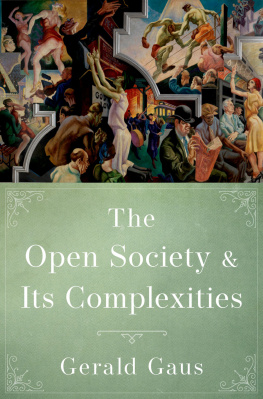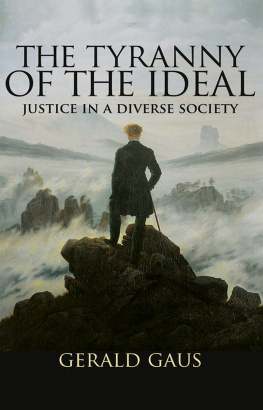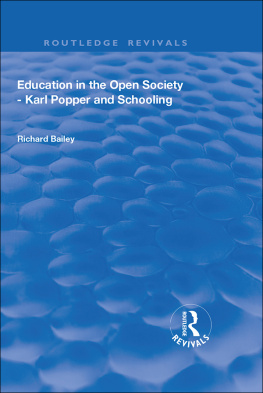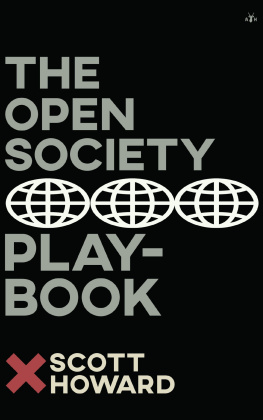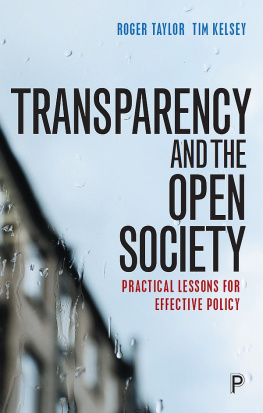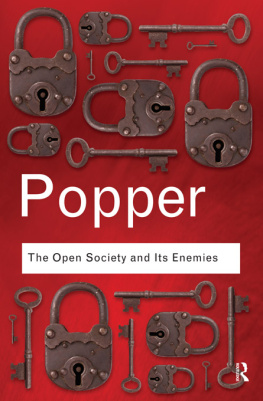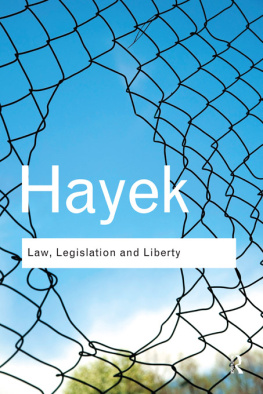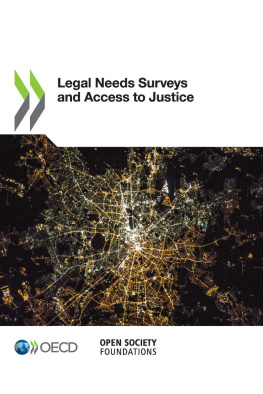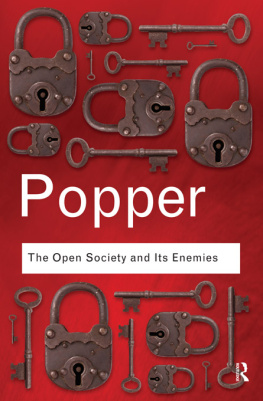The Open Society and Its Complexities
PHILOSOPHY, POLITICS, AND ECONOMICS
Ryan Muldoon, Carmen Pavel, Geoff Sayre-McCord, Eric Schliesser, Itai Sher
Series Editors
Published in the Series
The Open Society and Its Complexities
Gerald Gaus

Oxford University Press is a department of the University of Oxford. It furthers the Universitys objective of excellence in research, scholarship, and education by publishing worldwide. Oxford is a registered trade mark of Oxford University Press in the UK and certain other countries.
Published in the United States of America by Oxford University Press
198 Madison Avenue, New York, NY 10016, United States of America.
Oxford University Press 2021
All rights reserved. No part of this publication may be reproduced, stored in a retrieval system, or transmitted, in any form or by any means, without the prior permission in writing of Oxford University Press, or as expressly permitted by law, by license, or under terms agreed with the appropriate reproduction rights organization. Inquiries concerning reproduction outside the scope of the above should be sent to the Rights Department, Oxford University Press, at the address above.
You must not circulate this work in any other form and you must impose this same condition on any acquirer.
Library of Congress Cataloging-in-Publication Data
Names: Gaus, Gerald F., author.
Title: The open society and its complexities / Gerald Gaus.
Description: New York, N.Y. : Oxford University Press, 2021. |
Series: Philosophy, Politics, and Economics | Includes bibliographical references.
Identifiers: LCCN 2020058625 (print) | LCCN 2020058626 (ebook) |
ISBN 9780190648978 (hardback) | ISBN 9780190648992 (epub)
Subjects: LCSH: Social sciencesPhilosophy. | Social ethics. |
Liberalism. | Hayek, Friedrich A. von (Friedrich August), 18991992.
Classification: LCC H61 .G38 2021 (print) | LCC H61 (ebook) |
DDC 300.1dc23
LC record available at https://lccn.loc.gov/2020058625
LC ebook record available at https://lccn.loc.gov/2020058626
DOI: 10.1093/oso/9780190648978.001.0001
Contents
Philosophy, Politics, and Economics (PPE) is coming of age as a distinct area of research of high social relevance. Modern societies face complex challenges, including those associated with inequality, trade, discrimination, disease, environmental degradation, immigration, pluralism, and technological change. PPE can foster a more robust interdisciplinary understanding of these challenges.
The Oxford University Press book series Philosophy, Politics, and Economics provides a home for PPE research ranging from fundamental theoretical issues to pressing questions of public policy. Across the board, the series aims to publish work that integrates philosophy, political science, and economics (and, indeed, all the social sciences) to tackle or solve important theoretical and policy questions. We are self-consciously ecumenical about the scope and focus of work in the series: PPE can and should range broadly and we are excited to explore its frontiers.
It is fitting that the inaugural book in the Philosophy, Politics, and Economics series is by Jerry Gaus, who was a crucial figure in developing PPE in North America. Jerry founded the journal Politics, Philosophy & Economics, he wrote the introductory text On Philosophy, Politics, and Economics, and he was instrumental in the PPE program at the University of Arizona, as well as being the first head of department for the Political Economy and Moral Science department. Jerrys work was groundbreaking in no small part because of its serious integration of ideas from philosophy and the social sciences to more adequately address complex social challenges. This final book from Jerry demonstrates the promise of PPE as a field.
Ryan Muldoon, Carmen Pavel, Geoff Sayre-McCord, Eric Schliesser, and Itai Sher
Series Editors
The Open Society, Hayek thought, is a new form of civilizationone that in many ways has outstripped our moral and cognitive capacities. As I show here, Hayeks analyses were far ahead of the social theory of his dayand in many ways, of ours too. He advanced strikingly original and sophisticated theories of cultural and moral evolution, as well as social complexity and self-organization. This book is an extended engagement with his revolutionary, and seldom appreciated, research project. However, it is not a book about Hayek: my aim is not explication, defense, or critique. As a living research project, it ultimately does not much matter what Hayek said, but where the best evidence and analyses lead. No matter how prescient, Hayeks core work was done over a half a century ago. We have learned a tremendous amount in the last twenty years: my aim here is to consider Hayeks core theses in light of this exciting contemporary workand my own analysis of social morality.
This project requires that I draw not simply on political philosophy, but on evolutionary analyses, primatology, anthropology, moral psychology, analyses of complex systems, experimental economics, studies of norms, economic development, policy studies, analyses of governance and collective action, randomized control trials, and much more. The argument ranges from more traditional social and political philosophy to reports on fieldwork and experiments through empirical evidence to formal modeling. I do not see this method as innovativeits the way I was taught to do political theory by John Chapman. In his graduate seminars at the University of Pittsburgh, John would hand us a pile of five or so books, with the assignment to write a paper on them for next week to present to the seminar. Nothing was off the agenda. Not just Rawls, Nozick, Hayek, Oakeshott, Barry, Walzer, Shklar, Lukcs, and Macpherson, but also North, Geertz, E. O. Wilson, Lindblom, Phelps Brown, Meade, Weber, Tiger and Fox, McNeil, Wiles, Demsetz, Janes alland piles morewere relevant to thinking about social and political life.
John had no moniker for this approach except what the job is. He did sometimes contrast it to a type of analytical philosophy that he dubbed watchmakingcreating a tiny, beautiful, pristine mechanism but knowing nothing about the world in which it operated. At Arizona we have called this more comprehensive approach political economy and moral sciencethe name of our new department devoted to interdisciplinary investigation of moral, social, and political life. The emerging discipline of PPE is another manifestation of this view about what the job is. This long-standing methodologygoing back at least to Hume and Smithstands in stark opposition to so much of what now falls under the rubric of political philosophy in philosophy departments, which has degenerated into reports of the intuitions and judgments of a section of upper-middle-class Americans and Europeans. There is clear evidence that this is a remarkably biased group, both in political beliefs Manifestly parochial and biased intuitions are increasingly presented as compelling evidence of objective moral demands to which all must conform. It is not impossible that this distinctive subset of upper-middle-class Americans and Europeans have intuitions that provide privileged access into timeless justice, but I wouldnt bet the farm on it. If they are to be worthwhile and productive activities, social and political philosophy must carefully study humans and the immense diversity of their social lives before daring to reach normative conclusions. Of course, no matter what we do, our conclusions may fall into error and bias, but the more we see ourselves as students of society, rather than moral oracles and critics, the more likely it is that we will contribute to human knowledge and wisdom rather than use our professional status as a tool in ideological struggle.

